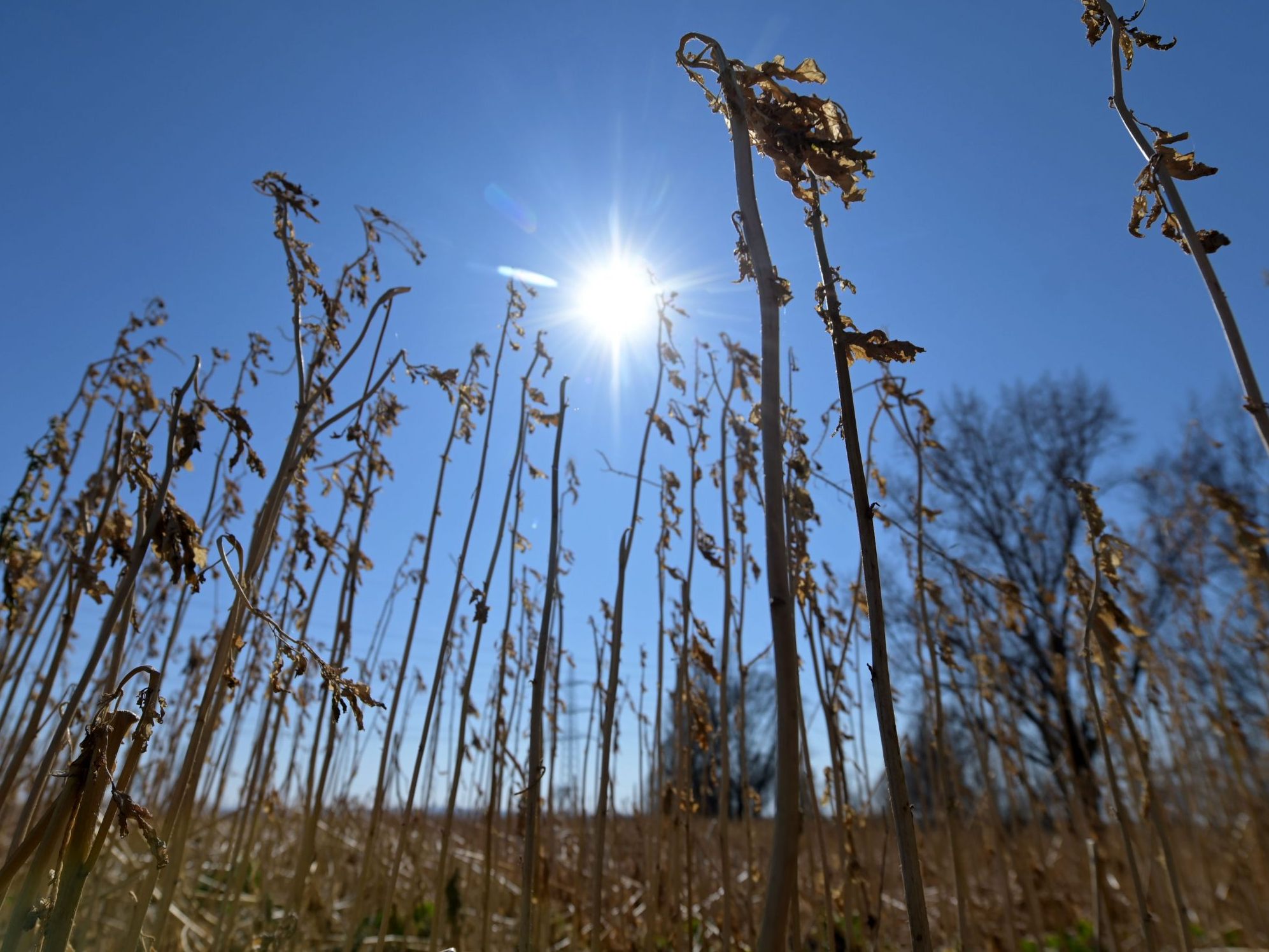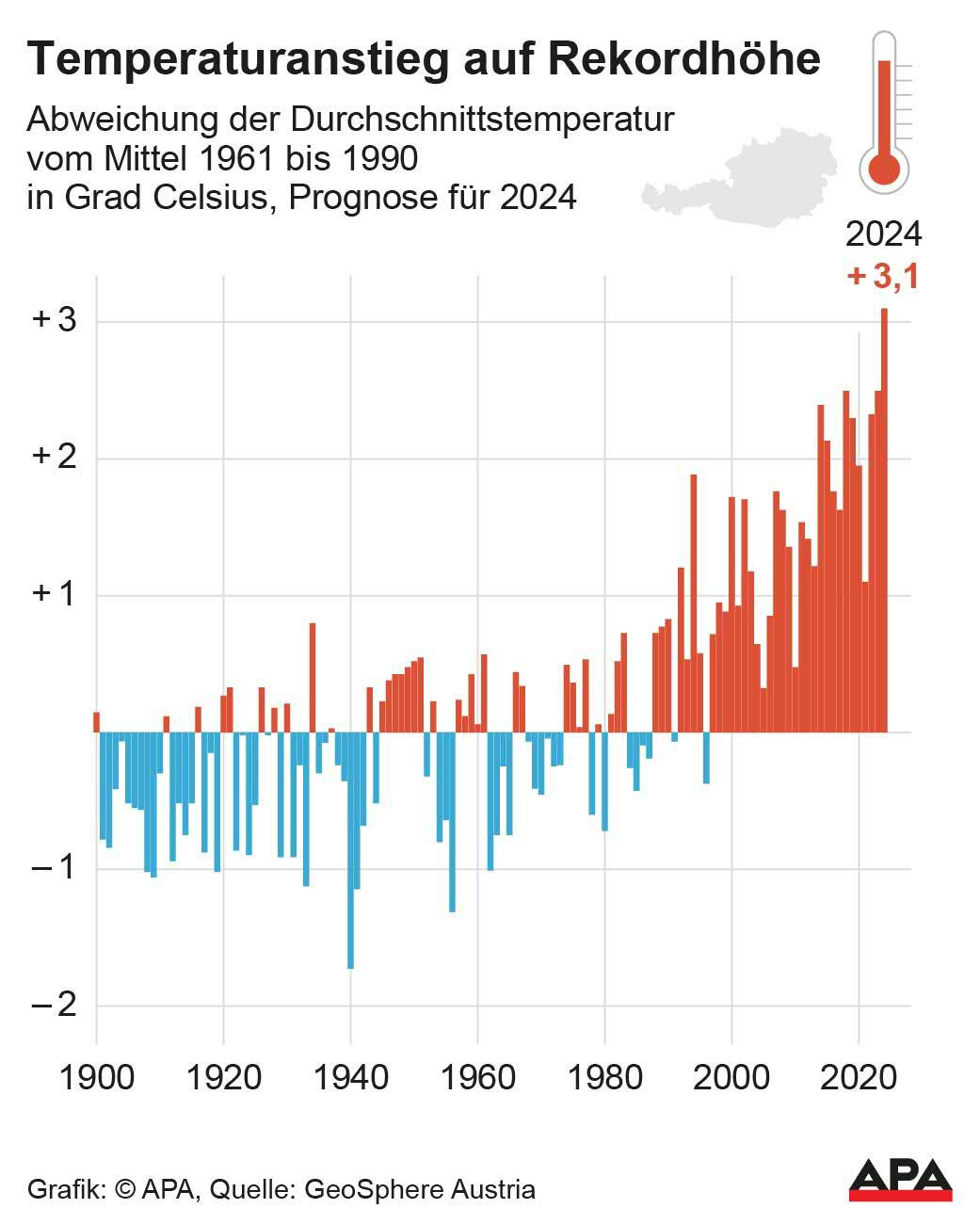Climate Change: 2024 Was the Warmest Year on Record

"Taking into account the forecasts for the last days of the year, 2024 was 1.8 degrees warmer in the lowlands of Austria and in the mountains than an average year in the already very warm climate period from 1991 to 2020," Geosphere Austria announced on Thursday.
2024 in the Lowlands 3.1 Degrees Above Average
2024 thus confirms the trend towards an increasingly warmer climate. According to Geosphere, almost all of the 25 warmest years in the 257-year measurement history are recent years. "Compared to the climate period from 1961 to 1990, which was not yet so strongly affected by global warming, the year 2024 in the lowlands was 3.1 degrees above average and in the mountains 3.0 degrees," says climatologist Alexander Orlik. Scientists attribute the temperature rise to human-induced climate change.

Vienna with New Record of Hot Days
2024 started with the second warmest winter in measurement history and was followed by the warmest spring and summer. Accordingly, there were also records during the year. For example, 100 of the approximately 290 weather stations of Geosphere Austria recorded new April high temperatures and 30 stations new September high temperatures. A new record number of hot days (at least 30 degrees) were recorded by the weather stations Vienna Inner City (52 hot days), Eisenstadt (48), Vienna Hohe Warte (45) and St. Pölten (42).
2024 also with Extreme Precipitation in Austria
The amount of precipitation in 2024 was on average eight percent above average across the whole of Austria. It was thus one of the 30 rainiest years in the 167-year precipitation measurement series. A large part of this is due to the extremely rainy September, which brought devastating floods to the eastern half. An example of the influence of the September extreme rain on the overall balance: In St. Pölten, it rained 409 millimeters within five days in mid-September. This is a large part of the precipitation of an average entire year in St. Pölten (723 millimeters). July and August were significantly too dry in Austria in 2024.
(APA/red)
This article has been automatically translated, read the original article here.





